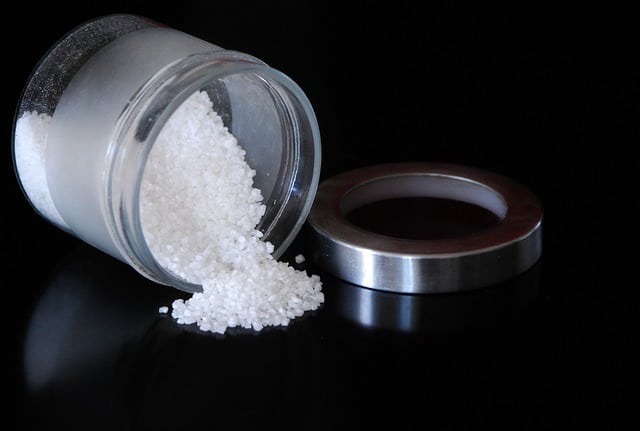
I am sure I am not alone when I was slightly confused the first time I saw my dishwasher displaying the ‘Please Fill Salt’ icon, my first question was, why and then what happens if I don’t? This got me to write a short article on the topic both for my own learning and for anyone else out there who was slightly confused. It turns out dishwasher salt is an essential component of many modern dishwashers, and it plays a crucial role in ensuring that your dishes come out clean and sparkling every time. In this guide, we will explore what dishwasher salt is, why you need it, how to use it, and what happens if you don’t use it.
Dishwasher salt is needed to ensure clear glass, clean dishes, and optimal dishwasher functionality in households with hard water without a reverse osmosis system or water softener installed. Dishwasher salt neutralizes ‘Hard’ minerals like calcium and lime which can leave marks on dishes and block up dishwashers.
Why Do You Need Dishwasher Salt?

Hard water, which is water that contains a high concentration of minerals such as calcium and magnesium, can leave unsightly stains and deposits on your dishes. Over time, these deposits can build up on your dishwasher’s heating element and other internal components, causing it to become less efficient and even break down.
By using dishwasher salt, you can help to soften the water, reducing the amount of minerals that are deposited on your dishes and inside your dishwasher. This not only helps to keep your dishes looking clean and new but also extends the life of your dishwasher.
If you live in an area with low water hardness or even have a reverse osmosis filtration system or a water softener installed in your home then you don’t need to be too worried about the warnings to fill up the salt in your dishwasher, your machine doesn’t actually need it.
What is Dishwasher Salt?
Dishwasher salt, also known as water softener salt, is a type of salt specifically designed for use in dishwashers. It comes in the form of small granules, which dissolve in water and help to remove mineral deposits and hard water stains from your dishes.
Is Dishwasher Salt Different To Regular Salt?
Dishwasher salt is different from regular table salt. While table salt is primarily used for seasoning food, dishwasher salt is specifically formulated to help soften hard water and prevent mineral buildup in dishwashers. Dishwasher salt is usually made of a purer form of sodium chloride and does not contain additives such as iodine or anti-caking agents that can harm your dishwasher. Additionally, dishwasher salt is often larger in size and designed to dissolve more slowly than table salt, allowing it to work more effectively in dishwashers.

How to Use Dishwasher Salt
Using dishwasher salt is a simple process. First, you need to check whether your dishwasher has a built-in salt dispenser. Most modern dishwashers do, and you should be able to find it at the bottom of the dishwasher. If your dishwasher doesn’t have a salt dispenser, you can add the salt directly to the bottom of the dishwasher.
To use dishwasher salt, you need to:
- Check the salt level: Before adding salt to your dishwasher, check the salt level indicator. This is usually a small window on the front of your dishwasher, which shows you the current salt level. If the salt level is low, you will need to add more salt.
- Add the salt: Open the salt dispenser, and pour the salt granules in. Be careful not to overfill the dispenser, as this can cause blockages.
- Run the dishwasher: After adding the salt, run the dishwasher as normal. The salt will dissolve in the water and help to soften it, ensuring that your dishes come out clean and free of mineral deposits.
What Happens if You Don’t Use Dishwasher Salt?
If you don’t use dishwasher salt, the hard water in your dishwasher will deposit minerals on your dishes, making them look dirty and unsightly. Over time, these mineral deposits can also build up on your dishwasher’s internal components, reducing its efficiency and lifespan. In addition to this, using hard water can cause your dishwasher to consume more energy and water, as it has to work harder to clean your dishes. This can lead to higher energy bills and a less eco-friendly home.


